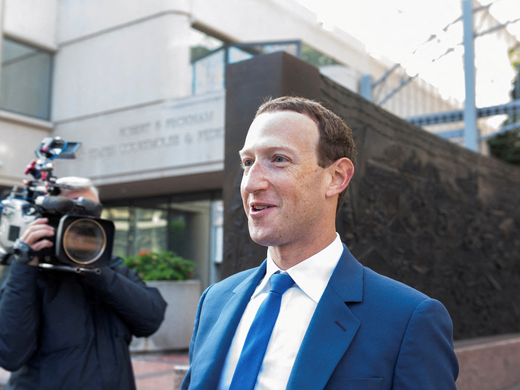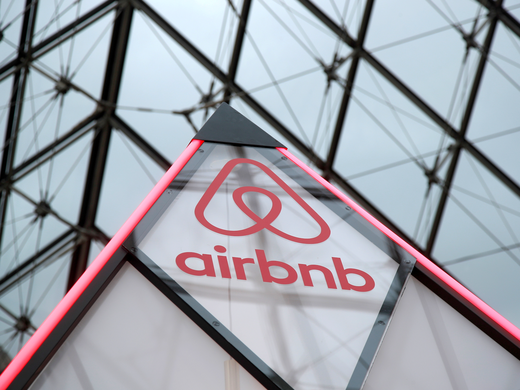One of the biggest frustrations of texting is the divide between blue and green bubbles. Despite rapid technological advancements, from artificial intelligence to extended reality, we still cannot easily send texts, pictures and videos between Apple and Android devices. More importantly, fully functional and interoperable group chats between these platforms are still a challenge, which makes interoperable messaging apps such as WhatsApp essential.
While WhatsApp has been widely popular worldwide, with more than 2.5 billion users, it was less known in the United States until 2022 because most US phone plans include unlimited texting for a flat rate. In many countries where text messages are metered, WhatsApp is not only more convenient, but also a more affordable option for communication.
However, in recent years, WhatsApp has become popular among North Americans of all ages. You may have already joined a WhatsApp group with your family, neighbours or friends. The platform is also now used for large-group messaging, effectively replacing many email chains.
It’s not widely known that Meta (formerly Facebook) owns WhatsApp, which it acquired in 2014 to consolidate its dominant position in global communications. At the time, WhatsApp did not collect phone numbers, metadata or other contact information, and Facebook pledged not to change WhatsApp’s data-usage policies and to keep it operating completely autonomously.
However, this separation lasted only a few years. Since the implementation of a little-noticed privacy update in 2016 (users had 30 days to opt out, yet many did not realize this or joined the app afterward and had no choice), Facebook has been collecting metadata from WhatsApp users, even though chats remain end-to-end-encrypted. This metadata allows Meta to create a detailed profile of WhatsApp users and their activity.
More recently, in 2021, WhatsApp updated its terms of service and privacy policy to broaden its data-sharing practices with Facebook (which had not yet become Meta). Users were notified that they must accept the new terms or leave the platform. Facebook downplayed the significance of these updates, suggesting that they would only impact communication with business accounts. WhatsApp Business, which launched in 2018, had already laid the groundwork for changes aimed at business-to-consumer messaging. The new terms permitted Meta to collect payment and transaction data from WhatsApp users.
Faced with widespread backlash and scrutiny, the company abandoned its plans to remove users who did not accept the updated terms in May 2021, providing temporary relief for its two billion users. Since then, WhatsApp executives have hinted that business messaging would become the next major pillar of Meta’s strategy to further monetize WhatsApp. The platform continues to introduce paid tools and custom apps designed for business-to-consumer communication, and is also building its payments infrastructure. For instance, WhatsApp Flow creates personalized customer journeys from hey to pay, allowing users to pay for purchases directly within the app.
Despite more than 200 million businesses using WhatsApp’s professional business apps, WhatsApp payments are currently available only in India and Brazil, the platform’s two biggest markets. It’s no secret that Meta aims to position WhatsApp as a cornerstone for business communication worldwide. But there are risks.
China’s WeChat, with a user base of one billion, serves as a cautionary tale for WhatsApp’s long-term plans. WeChat is not just a messaging app, but a super app — a one-stop shop for everything from social media and online shopping to payments and currency exchange. This level of integration means that WeChat has collected an unprecedented amount of personal data, setting a model that Meta may try to emulate.
Given that its business model is already based on digital surveillance and data extraction to build user profiles for targeted ads, Meta is bound to be highly interested in making WhatsApp an everything app, deepening user reliance. If user convenience is the most crucial factor across digital platforms, WhatsApp has great potential not only as a convenient alternative for its 2.5 billion users, but also as a cash cow for Meta.
Meta, for its part, has a strong financial incentive to monitor all aspects of consumer transactions, use that data for hyper-targeted advertising, engage in bank-like activities and leverage financial data to gain significant monetary advantages, all while facing few of the limitations and obligations of chartered banks.
Has WhatsApp already become too deeply integrated in everyday digital culture? Will it evolve into a super app that transforms our digital lives while remaining unregulated and entirely in Meta’s hands? Should we, as a society, accept a future in which tech companies such as Meta exercise extraordinarily invasive power, while claiming it is all for our convenience? A surveillance-capitalist business model, built on a foundation of mostly unseen intrusions into privacy and mostly invisible gathering of private data, is fundamentally at odds with democratic values.
In the absence of proactive regulatory intervention, WhatsApp could easily evolve into a super app under Meta’s monopolistic control. As digital assets become more prominent in this election cycle in the US, there is also the potential for cryptocurrencies to be integrated into WhatsApp payments, making such transactions even more seamless and convenient.
Fortunately, the US Consumer Financial Protection Bureau is actively conducting research and regulatory oversight on in-app payments, focusing on potential risks such as fair lending concerns and unfair, deceptive or abusive practices. Financial consumer protection laws, which protect users from these practices, are a cornerstone of the modern digital economy. As new digital technologies and services continuously emerge, it’s our right as consumers to demand that existing protections and regulatory oversight extend to them, along with additional safeguards for the evolving digital payments and currency landscape.
The numerous Facebook scandals we’ve witnessed – such as the Cambridge Analytica data breach and the creation of shadow profiles of non-users through unauthorized data collection provide a stark reminder of what can happen when Meta goes unchecked. In the lightning-paced world of technology, it’s easy to find ourselves constantly playing catch-up. That’s why we need to take a forward-looking approach, preparing ourselves to understand and anticipate what’s coming, rather than simply reacting to Meta’s actions.


